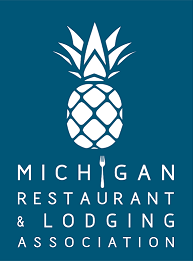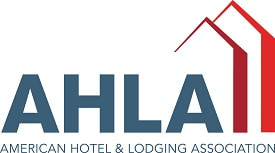Ask the Experts: Requirements for Operating with Liquor Licenses
|

Q: It’s a new year! What can I expect to see when operating with a liquor license?
A: The Michigan Liquor Control Commission (MLCC) and municipalities have many requirements for existing and future licensees to keep in mind.
As a liquor law practitioner, I cannot overemphasize the importance of compliance issues. Clients often come to us and say, “Our deal is closing this week. Please help us transfer the liquor license.” Our response is that, barring an act of congress, this is impossible. Parties often spend weeks or months negotiating a lease or real estate transaction, but then ink the deal without considering the time required to transfer a liquor license. Those of you are who “seasoned” in this industry know not to leave this issue for last! There is a laundry list of requirements for business buyers and sellers who are transferring liquor licenses. Importantly, satisfying these requirements takes time and money.
A: The Michigan Liquor Control Commission (MLCC) and municipalities have many requirements for existing and future licensees to keep in mind.
As a liquor law practitioner, I cannot overemphasize the importance of compliance issues. Clients often come to us and say, “Our deal is closing this week. Please help us transfer the liquor license.” Our response is that, barring an act of congress, this is impossible. Parties often spend weeks or months negotiating a lease or real estate transaction, but then ink the deal without considering the time required to transfer a liquor license. Those of you are who “seasoned” in this industry know not to leave this issue for last! There is a laundry list of requirements for business buyers and sellers who are transferring liquor licenses. Importantly, satisfying these requirements takes time and money.

Buyers of liquor-licensed businesses should consider the following:
1. Are you qualified for licensure? The basic qualifications are:
2. Do you have appropriate property documents? If you are leasing the premises, do you have a real estate lease? If you’re buying it, do you have a deed or land contract? The MLCC requires that all applicants have legal control over what the MLCC defines as the “physical plant”.
3. Do you have required company documents, including articles of incorporation or organization, and supporting documents, such as stock certificates, bylaws, minutes, or an operating agreement?
4. Do you have an outdoor patio? If so, and if it’s on municipal property, the MLCC requires municipal approval. This often involves the planning department or other municipal boards’ approvals.
5. If you are transferring the liquor license to a different location, is there a church or school within 500 feet? If so, the church or school will be given an opportunity to object to the licensure.
6. Does the buyer operate with a third party, such as a hotel manager? If so, the MLCC may require the hotel manager to be named as a participant on the hotel’s license. This requires submission of an additional application and documents to the MLCC.
7. Does the municipality have a separate licensing approval process? If so, this normally takes a lot of time. If the buyer or tenant is applying for a new or “quota” license, the MLCC won’t act until the applicant has secured municipal approval.
If you are selling your business, remember that the MLCC will conduct a “present ownership check”. This means the books and records of the selling business must be in order, including seller’s tax returns. If, for example, one of the seller’s stockholders has died or transferred stock, MLCC approval is usually required. If the MLCC investigation reveals that this has occurred without MLCC approval, the MLCC may issue a violation against the seller. This will stop the buyer’s application in its tracks until the violation is resolved.
The MLCC staff works as hard and as fast as possible. However, due to the volume of applications and the legal and administrative requirements imposed on the MLCC staff, the application process often takes months.
Personal Notes:
Welcome Billy Downs, a standout leader in the industry. The MRLA could not be in better hands! We mourn the loss of Tom Hagen, who was the MLCC’s top enforcement officer for many years. Tom’s passing is a huge loss to all of those in the industry. The world was a better place with him in it!
1. Are you qualified for licensure? The basic qualifications are:
- Must be 21 years of age.
- Must be a U.S. citizen or lawful resident of the United States.
- Retail licensees cannot own any interest in a business licensed in the wholesale or manufacturer tiers.
- Cannot have police powers enabling the owner to enforce the Michigan Liquor Control Code.
- Must disclose any criminal or ordinance violation convictions. (The conviction itself may not be disqualifying, but non-disclosure is almost always disqualifying).
- MLCC violations at other locations owned by the buyer must be considered. Depending on the severity and timing of the violation(s), the MLCC may deny the buyer’s application for an additional license.
2. Do you have appropriate property documents? If you are leasing the premises, do you have a real estate lease? If you’re buying it, do you have a deed or land contract? The MLCC requires that all applicants have legal control over what the MLCC defines as the “physical plant”.
3. Do you have required company documents, including articles of incorporation or organization, and supporting documents, such as stock certificates, bylaws, minutes, or an operating agreement?
4. Do you have an outdoor patio? If so, and if it’s on municipal property, the MLCC requires municipal approval. This often involves the planning department or other municipal boards’ approvals.
5. If you are transferring the liquor license to a different location, is there a church or school within 500 feet? If so, the church or school will be given an opportunity to object to the licensure.
6. Does the buyer operate with a third party, such as a hotel manager? If so, the MLCC may require the hotel manager to be named as a participant on the hotel’s license. This requires submission of an additional application and documents to the MLCC.
7. Does the municipality have a separate licensing approval process? If so, this normally takes a lot of time. If the buyer or tenant is applying for a new or “quota” license, the MLCC won’t act until the applicant has secured municipal approval.
If you are selling your business, remember that the MLCC will conduct a “present ownership check”. This means the books and records of the selling business must be in order, including seller’s tax returns. If, for example, one of the seller’s stockholders has died or transferred stock, MLCC approval is usually required. If the MLCC investigation reveals that this has occurred without MLCC approval, the MLCC may issue a violation against the seller. This will stop the buyer’s application in its tracks until the violation is resolved.
The MLCC staff works as hard and as fast as possible. However, due to the volume of applications and the legal and administrative requirements imposed on the MLCC staff, the application process often takes months.
Personal Notes:
Welcome Billy Downs, a standout leader in the industry. The MRLA could not be in better hands! We mourn the loss of Tom Hagen, who was the MLCC’s top enforcement officer for many years. Tom’s passing is a huge loss to all of those in the industry. The world was a better place with him in it!
Click to set custom HTML




